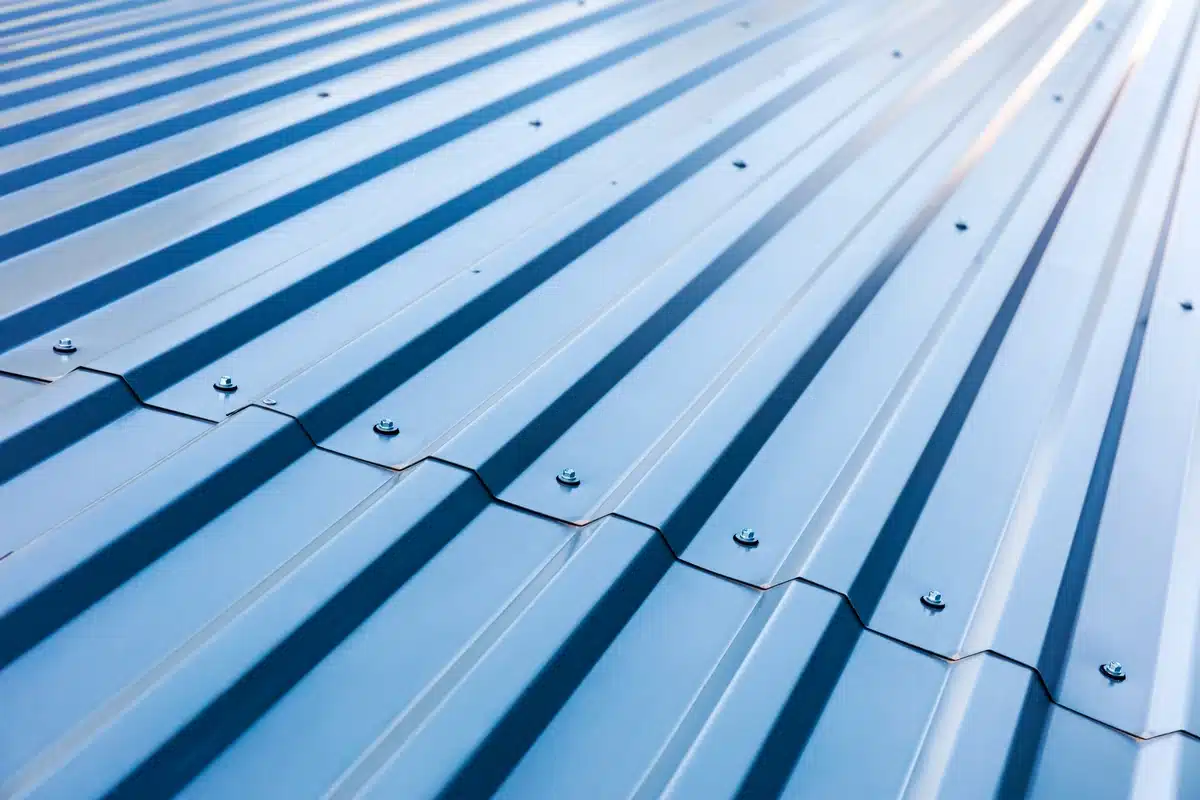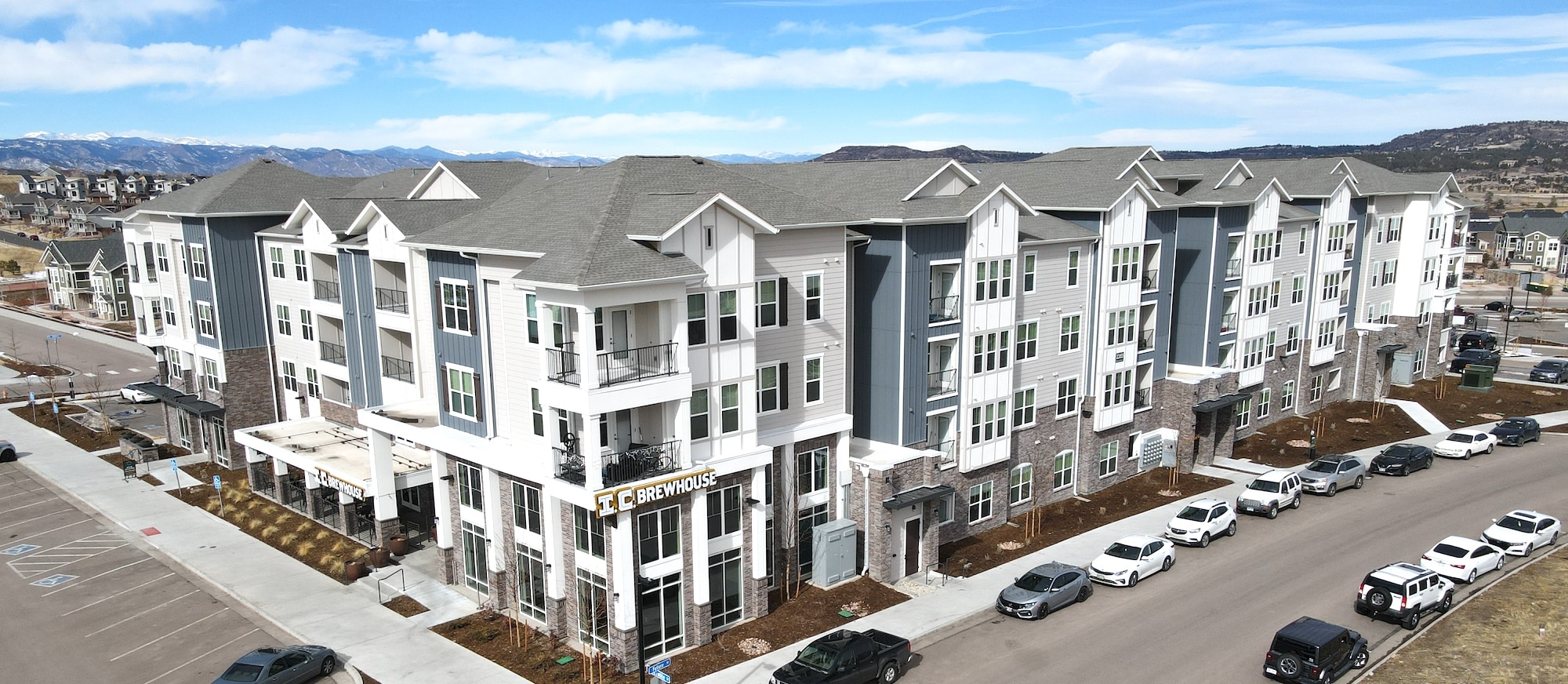Roll Forming
Table of Contents
In the realm of modern roofing, innovations and advancements continue to redefine the landscape, providing homeowners and businesses with durable, efficient, and aesthetically pleasing solutions. Among these advancements, roll forming stands out as a fundamental process that revolutionizes the manufacturing of roofing materials, particularly metal roofing.
This comprehensive guide delves into the intricate world of roll forming, including:
- Its relevance to roofing
- The advantages of having an in-house fabricator at your roofing contractor
- The nuances of metal roofing
- The cost considerations associated with this enduring roofing option
What is Roll Forming?
Roll forming is a sophisticated manufacturing process employed to shape flat metal sheets into desired profiles or cross-sections. It involves passing a continuous strip of metal through a series of rolls or rollers, each progressively bending the metal into the desired shape. The process can accommodate various metals, including steel, aluminum, copper, and zinc, allowing for versatility in design and functionality.
How Roll Forming Pertains to Roofing

In the realm of roofing, roll forming plays a pivotal role in the production of metal roofing components. These components encompass a myriad of elements, including panels, trims, flashing, and gutters, all of which contribute to the structural integrity and aesthetic appeal of a roof. By utilizing roll forming techniques, roofing manufacturers can produce customized roofing solutions tailored to the specific requirements of each project, ensuring seamless integration and optimal performance.
3 Benefits of Having an In-House Fabricator at Your Roofing Contractor
Having an in-house fabricator at your roofing contractor offers a multitude of advantages, ranging from enhanced quality control to expedited project timelines. By leveraging the expertise of skilled fabricators, roofing contractors can:
1) Streamlining
An in-house fabricator can help to streamline the production process and get you your materials faster.
2) No Delays
When there are problems in the roll forming industry, you can have long waits before recieving yoru product. An in-house fabricator can help you mitigate potential delays.
3) Quality Control
An in-house fabricator can help you maintain stringent quality standards throughout the manufacturing process. This will leave you with a strong and durable roofing system.
Additionally, in-house fabrication empowers contractors to offer bespoke roofing solutions that cater to the unique needs and preferences of their clientele, fostering customer satisfaction and loyalty.
Pros and Cons of Metal Roofing

Metal roofing stands as a popular choice among homeowners and businesses alike, thanks to its durability, longevity, and aesthetic appeal. However, like any roofing material, metal roofing possesses its own set of pros and cons, which merit careful consideration before making a decision.
✅ Pros
- Longevity: Metal roofing boasts an impressive lifespan, often lasting upwards of 50 years or more with proper maintenance.
- Durability: Metal roofs are highly resistant to extreme weather conditions, including heavy rain, snow, hail, and wind, providing superior protection for years to come.
- Energy Efficiency: Metal roofing reflects solar radiant heat, reducing cooling costs during hot summer months and enhancing energy efficiency.
- Low Maintenance: Metal roofs require minimal maintenance compared to traditional roofing materials, saving homeowners time and money over the long term.
- Aesthetic Versatility: With an array of colors, finishes, and profiles available, metal roofing offers unparalleled design versatility, allowing homeowners to achieve their desired aesthetic vision.
❌ Cons:
- Initial Cost: While metal roofing offers long-term savings, the initial cost of installation tends to be higher than that of traditional roofing materials, such as asphalt shingles.
- Expansion and Contraction: Metal roofs are prone to expansion and contraction with fluctuations in temperature, which may lead to noise generation and potential fastener loosening over time.
- Denting: Despite their durability, metal roofs are susceptible to denting from falling branches, hail, or other impact sources, which may necessitate repairs or replacements.
- Compatibility: Metal roofing may not be compatible with certain architectural styles or historical structures, limiting its applicability in some contexts.
- Installation Complexity: Installing metal roofing requires specialized skills and equipment, which may result in higher installation costs compared to conventional roofing materials.
How Much Does a Metal Roof Cost?
The cost of a metal roof can vary significantly depending on various factors, including the type of metal used, the complexity of the installation, the size of the roof, and regional labor rates. On average, homeowners can expect to pay between $7 to $12 per square foot for a metal roof installation. However, it’s essential to note that this figure is a general estimate, and actual costs may deviate based on individual circumstances and project specifications.

Learn More About the Roll Forming Process
Roll forming represents a cornerstone of modern roofing, enabling the production of high-quality metal roofing components that offer durability, longevity, and aesthetic versatility. By understanding the intricacies of roll forming, homeowners and businesses can make informed decisions regarding their roofing needs, whether opting for a metal roofing solution or exploring alternative options. With the guidance of skilled roofing contractors and fabricators, the journey towards a reliable and visually stunning roof becomes an attainable reality, ensuring lasting protection and satisfaction for years to come.
Want to learn more about the roll forming process as well as our metal roofing services? Contact Tectum Roofing today to learn more!



